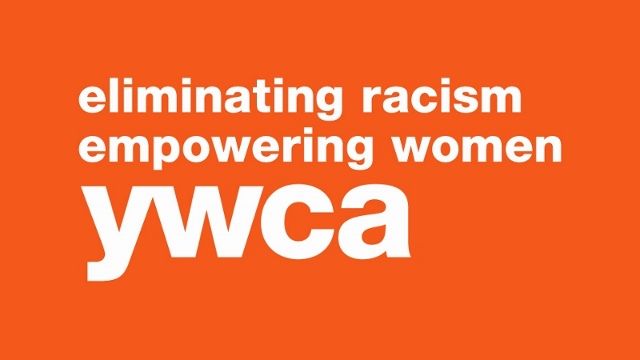What does the topic, “Domestic Violence: In Praise and Rebuke of the Black Church” have to do with Black History Month?
Carolyn Morgan, LCSW
Chairperson, Women of Color Task Force
What has been the historical strength of the black church, where has it fallen short, and why does it even matter in terms of the eradication of intimate partner violence (IPV) in 2021?
What are some terms we need to clarify?
If you do not understand the black church, I will not define it for you. Your assignment will be to research it. In this blog, I sometimes interchange the terms DV and abuse, because African-Americans sometimes view the word violence only in context of physical battering, and often minimize or trivialize other forms of non-physical abuse. I also exchange the terms survivors and victims, because of similar cultural influences; and I often reference these persons in female gender, because it is this group that accounts for the largest percentage of persons who identify as those adversely impacted by DV.
How can abuse be viewed as natural and spiritual?
Abuse is about power, control, and privilege (PCP). It manifests in variant forms, including spiritual abuse. Perpetrators are known to present themselves as Christ-like; victimizing their spouse or intimate partner by manipulating and coercing them into compliance by leveraging religious beliefs, and twisting doctrine and biblical scripture, to force them into subjection to their wishes and demands. These men are characterized by often elevating themselves to the role of “mini/ semi-gods”; expecting victims to fully consent to, obey, and submit to their will and way. Like with all PCP, various forms of punishment result if the victim/survivor fails to comply.
What are we commending the black church for?
Let’s proceed by looking at common characteristics of all devalued and marginalized populations. We then can readily extend high praise and commendation to the black church for its historical and continuing vital role, a strong and supportive institution that has sustained its members, families, and communities when little else could. We can applaud the black church as a great refuge for those experiencing many of the adverse circumstances and situations that similarly define the life of DV survivors. We are grateful for the black church’s extension of God’s goodness, grace, mercy, faith, hope, and love. Without it, many of us would not have survived.
The black church has forever played a key role in ministering to the hurt and broken-hearted, the disillusioned and bound, the abused and victimized. It has historically been a mighty and powerful institution that helped to define our culture in the African-American community. It is a principle force that contributed significantly to the viability and sustenance of our heritage, and the meeting of our spiritual and many other needs for African-American individuals, families, and communities. It has served to promote both personal and social transformation and change. Examples include movements for racial equality, civil and political rights, and economic and social standards of living progress. The black church was a source of relief from some of the stressors, pain, and suffering our fore-parents had to bear. It allowed us to go through dominance and discrimination in our American society that has always been racially unjust from slavery through today. It was the catalyst for not only igniting and empowering our spirit; but also blazing collective improvements in areas such as education, housing, health, legal, and other areas of well-being.
It is often hard for Caucasians and those representing other cultures to comprehend the full impact that the black church has had on African- Americans, and its centrality in our lives. Even in this current time of church attendance decline, separation by denomination and doctrine, criticism, and accountability, the black church remains a strong institutional source that African-Americans view as stabilizing and anchoring, impactful and influencing, and still largely positive and beneficial, relevant, and revered. It continues to shape many of our beliefs, perceptions, values, norms, behaviors, ways of interacting with others and our environment, and our general styles of living.
Have we justified the reasons that the black church is the first choice of help and assistance considered and sought by black women experiencing domestic violence and abuse?
The black church surpasses all other secular services, programs, and organizations whose existence and purpose are to address these concerns. Yes, survey after survey, research after research, confirms this reality.
So… what’s the problem pertaining to DV and the black church?
Women in the black church are most often the victims of DV and abuse, and women comprise the majority count of black church membership. Men in the black church are most often the perpetrators of DV and abuse, and men comprise the majority count of black church leadership. In part, this dynamic contributes to what commonly follows for black women seeking help from the black church.
Victims/ survivors of DV and abuse are coming for help and counsel because their relationship with the black church is often an extension of their relationship with God. It is a resource for strength, encouragement, comfort, solace, healing, and a rock or refuge in times of trouble. They are hoping for validation and support, and may even view the black church’s assistance as the remedy, relief, or fix that God has ordained for their survival. They are expecting to be believed and shown the demonstration of care and concern for this struggle they seemingly cannot overcome. They feel defeated and victory is certainly not assured. They need to feel connected to a higher power source capable of transforming their life and current situation. They are reaching out for freedom and deliverance, healing and restoration, and a revival in spirit.
They did not move past every fear it took to come through the church door or the pastor’s office to be shamed, blamed, and criticized.
What happens when the survivor engages with the black church?
All too often the “well-intended helping scenarios” play out as not beneficial to the victim, and non-conducive to the elimination of further violence and abuse. In fact, in many instances, the “meant to be therapeutic encounters” can be harmful, increasingly jeopardize safety, and expose the victim to more severe abusive consequences including the potential for death. This ignorance is continued in part, because few theological, pastoral, ministerial, and biblical training programs provide adequate training, instruction, or preparation for church leaders who will be expected to provide proper guidance, direction, support, and problem resolution for DV. Further, few in the black church choose to involve, reach out to, or partner with trained and knowledgeable professional DV community agencies and organizations. The concept of “don’t ask, don’t tell” is alive and well in the black church. The fallacy of “if it’s not spoken, it doesn’t exist” has not died. The public airing of ‘dirty laundry” remains God forbidden.
So…What are the Do’s and Don'ts that should be shared with the black church during Black History Month and All Year Through?
Do’s:
*Recognize and acknowledge that domestic violence and abuse commonly exist.
* Admit that we have sometimes turned a blind eye to the problem and inadequately addressed the problem.
*Strongly condemn domestic violence in intimate relationships, and communicate zero tolerance for the behavior.
*Validate and support victims or survivors of domestic violence and abuse, and demonstrate genuine concern for their experiences.
* Work toward establishing a culture of the woman being valued, respected, and equally able to contribute their talents, gifts, and abilities equally in the church.
*Hold abusers accountable for their actions, and remove them from church roles until the behavior has ceased.
*Include a discussion about domestic violence in premarital counseling sessions, and about healthy relationships in youth ministry programs and presentations.
* Include domestic violence education in bible classes, ministerial and leadership training courses, and men and women’s ministry events.
*Make domestic violence resource information available and offer confidential access to persons trained in domestic violence.
*Build working relationships with culturally competent community partners who specialize in domestic violence work that can serve as referral resources.
Don'ts:
*Do not meet with her and her spouse or intimate partner together to discuss his violence or abuse. She is not free to say what needs to be addressed, and there is the risk for retribution because she has revealed things about the abuser and his character that he may prefer not to be known.
*Do not advise her to stay and pray, and allow God to work it out, or change him or their abusive relationship. It is never as simple as encouraging her to forgive and forget, or explaining that God gives us all additional chances to get things right.
*Do not tell her to keep the abuse a secret, or encourage her to hold to what happens in the marriage or home, stays in the marriage or home. This eliminates any other potential sources of needed help other than the person providing the counsel. It eliminates professional or secular assistance outside the church.
* Do not suggest for her to do what has worked for you, your relationship or marriage, or someone else you know. All people and situations are unique, and each requires an individualized approach. Hearing about the wonderful and blissful relationships of others can potentially make her feel worse about hers.
* Do not blame the victim because she has not managed to change the abuser’s behavior. Only God is capable of that. Do not suggest that she examine herself for what she is not doing right, or how she might be contributing to the problem. There is no amount of sexual activity that changes how an abuser will treat her. Nothing she did or does justifies abuse.
*Do not instruct her that God and the Bible do not condone separation or divorce. God never sanctioned or supported marital violence and abuse, and those who claim to be Christians (Christ-like followers) should not either. Do not tell her to remain in the home. Home should not be a place where the hurt is and hell is unleashed, a placed to be avoided or escaped.
*Do not tell her that her staying in the relationship this long proves that she does not want to leave the abuser. Many leave the abuser and return for various reasons, before leaving permanently. Examples include children, finances, thinking the abuser has changed, etc.
* Do not assure her that love covers all. Abuse disqualifies the covering that real love provides. This is not the positive and meaningful love that the Bible characterizes in a union. This is not the command to love one another that is referenced in the bible.
* Do not link her leaving the abuser to her leaving the church, which may have much meaning in her life. Breaking free of the abuser is difficult enough without having to sacrifice the possible loss of valued roles of service, friends, fellow worshippers, social connections and supports, and others who may shun or cut her off.
* Do not reinforce that God has chosen the man to lead, and the woman to follow with a wifely duty to satisfy his assaultive, demeaning, exploitive, or perverted sexual acts (a common excuse for abuse). Adding that the marriage bed is undefiled does not explain away sexual assault or rape.
*Do not allow the abuser to twist or misinterpret biblical scriptures to justify his violent or abusive behaviors for selfish purposes. Do not allow him to engage in denial, or present his violence and abuse as an anger management problem. A relationship with God is transforming.
*Do not believe everything the abuser alleges about her or accuses her of doing. He must find faults and things he can identify as wrong with her to justify his abuse of her. Abusers are often threatened men who view themselves as inadequate or subpar. As such, there may be jealousy, suspicions of cheating and infidelity, and reports that she is unfaithful to him and her Christian walk with God. She may be described as a bad wife, an unfit mother, a poor housekeeper, a spiritual heathen, and overall failure with little or no redeeming qualities.
*Do not advise her to stay the course, anchor herself in her faith and the Word. Do not encourage allegiance to, and support of the man God has given her. Do not say things like fake it until you make it, and depend on prayer to bring you through.
*Do not tell her that she just needs to submit. Headship and authority should not be mistaken for domination of property or equated with abuse. The original meaning for the word and charge for submit or submission was understanding- (“sub” referencing under, and “mit” referencing a mission or stand taken). She has already unsuccessfully tried to understand him and his abusive behaviors.




